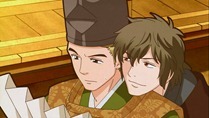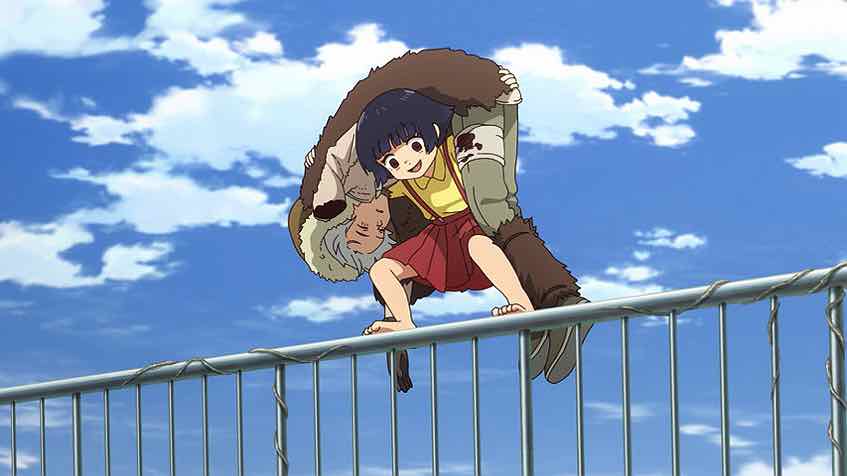![[HorribleSubs] Utakoi - 05 [720p].mkv_snapshot_06.30_[2012.07.30_15.02.38] [HorribleSubs] Utakoi - 05 [720p].mkv_snapshot_06.30_[2012.07.30_15.02.38]](https://lh5.ggpht.com/-Q_XeeLQfr6Q/UBcWBylW_iI/AAAAAAABlbs/5CquMSwGMYo/%25255BHorribleSubs%25255D%252520Utakoi%252520-%25252005%252520%25255B720p%25255D.mkv_snapshot_06.30_%25255B2012.07.30_15.02.38%25255D_thumb.jpg?imgmax=800) |
![[HorribleSubs] Utakoi - 05 [720p].mkv_snapshot_10.44_[2012.07.30_15.06.52] [HorribleSubs] Utakoi - 05 [720p].mkv_snapshot_10.44_[2012.07.30_15.06.52]](https://lh3.ggpht.com/-PU2BeMteadI/UBcWHadi-SI/AAAAAAABlb8/Nlp8iqzwygM/%25255BHorribleSubs%25255D%252520Utakoi%252520-%25252005%252520%25255B720p%25255D.mkv_snapshot_10.44_%25255B2012.07.30_15.06.52%25255D_thumb.jpg?imgmax=800) |
![[HorribleSubs] Utakoi - 05 [720p].mkv_snapshot_18.45_[2012.07.30_15.15.14] [HorribleSubs] Utakoi - 05 [720p].mkv_snapshot_18.45_[2012.07.30_15.15.14]](https://lh3.ggpht.com/-91BeaGAcKhU/UBcWI5bohkI/AAAAAAABlcM/bbQVeYtL52M/%25255BHorribleSubs%25255D%252520Utakoi%252520-%25252005%252520%25255B720p%25255D.mkv_snapshot_18.45_%25255B2012.07.30_15.15.14%25255D_thumb.jpg?imgmax=800) |
Even more than the last episode, this week’s Utakoi was about the art of poetry and those who love it.
![[HorribleSubs] Utakoi - 05 [720p].mkv_snapshot_00.22_[2012.07.30_14.57.37] [HorribleSubs] Utakoi - 05 [720p].mkv_snapshot_00.22_[2012.07.30_14.57.37]](https://lh5.ggpht.com/-NqVk98mdrjY/UBcWKSkUxcI/AAAAAAABlcc/sUKWrlubUoI/%25255BHorribleSubs%25255D%252520Utakoi%252520-%25252005%252520%25255B720p%25255D.mkv_snapshot_00.22_%25255B2012.07.30_14.57.37%25255D_thumb.jpg?imgmax=800) Fittingly there were four poems explored in this episode – though only two were actually part of the Ogura Hyakunin Isshu itself. Continuing last week’s tale of Yoshiko – by now known as Ono no Komachi – Narihira and Yasuhide. If there’s a human emotion that stands as a common thread throughout this week’s tale it’s regret, but this is also a quite romantic look at Heian poets seen through a modern lens – as determined individualists, as artists, and a fans of the art they love (the use of terms like “fangirl” and “cosplay” is certainly a concession to modern perspectives). The episode begins with Komachi gushing over standing on the spot where Prince Omi no Okimi wrote a famous poem of regret in 870 AD, starting at the island he was about to be exiled to for reasons that are lost to the sands of time. The poem is a sad one:
Fittingly there were four poems explored in this episode – though only two were actually part of the Ogura Hyakunin Isshu itself. Continuing last week’s tale of Yoshiko – by now known as Ono no Komachi – Narihira and Yasuhide. If there’s a human emotion that stands as a common thread throughout this week’s tale it’s regret, but this is also a quite romantic look at Heian poets seen through a modern lens – as determined individualists, as artists, and a fans of the art they love (the use of terms like “fangirl” and “cosplay” is certainly a concession to modern perspectives). The episode begins with Komachi gushing over standing on the spot where Prince Omi no Okimi wrote a famous poem of regret in 870 AD, starting at the island he was about to be exiled to for reasons that are lost to the sands of time. The poem is a sad one:
Waves crash
As I lament how fleeting life is
and feast on the island seaweed
from Irago Island
![[HorribleSubs] Utakoi - 05 [720p].mkv_snapshot_01.10_[2012.07.30_14.58.24] [HorribleSubs] Utakoi - 05 [720p].mkv_snapshot_01.10_[2012.07.30_14.58.24]](https://lh4.ggpht.com/-UTzxuwWrlM8/UBcWM_lNozI/AAAAAAABlcs/lmjEwg4-EtQ/%25255BHorribleSubs%25255D%252520Utakoi%252520-%25252005%252520%25255B720p%25255D.mkv_snapshot_01.10_%25255B2012.07.30_14.58.24%25255D_thumb.jpg?imgmax=800) But the real import is in the way Omachi responds to it. She, Narihara and Yasuhide are on a sort of road trip, the two of them accompanying Yasuhide as he heads off towards an assignment in “the boonies” as Narihira calls them. The remainder of the episode is a sort of preamble to this moments, as the three friends share sake and discuss their love of poetry – and their regrets about loves lost and choices made. We’re told that in this time, poets were generally regarded somewhat lightly by the truly powerful, and it was only later – after the death of Yasuhide and Narihira at the very least – that poetry become favored of the Emperor and truly respected as an art form.
But the real import is in the way Omachi responds to it. She, Narihara and Yasuhide are on a sort of road trip, the two of them accompanying Yasuhide as he heads off towards an assignment in “the boonies” as Narihira calls them. The remainder of the episode is a sort of preamble to this moments, as the three friends share sake and discuss their love of poetry – and their regrets about loves lost and choices made. We’re told that in this time, poets were generally regarded somewhat lightly by the truly powerful, and it was only later – after the death of Yasuhide and Narihira at the very least – that poetry become favored of the Emperor and truly respected as an art form.
One of Komachi’s famous poems – again not in the Hundred Poets – is here fancifully imagined as a response to a letter Yasuhide had written her, asking her to accompany him on his journey:
In this forlorn state
I am a water weed adrift;
if the(water beckoned
I would gladly cut my roots
and float your way.
![[HorribleSubs] Utakoi - 05 [720p].mkv_snapshot_03.04_[2012.07.30_14.59.13] [HorribleSubs] Utakoi - 05 [720p].mkv_snapshot_03.04_[2012.07.30_14.59.13]](https://lh6.ggpht.com/-6Xj7ycRIOtc/UBcWPGVC0_I/AAAAAAABlc8/VSW6eXFgBvA/%25255BHorribleSubs%25255D%252520Utakoi%252520-%25252005%252520%25255B720p%25255D.mkv_snapshot_03.04_%25255B2012.07.30_14.59.13%25255D_thumb.jpg?imgmax=800) Yasuhide here is seen as regretting her decision not to marry her “brother” Munesada. She’s failed to give the Emperor a child and been abandoned by him – her life is lonely, her beauty fading, and she will leave no progeny behind in the world. But in her hour of need Yasuhide and Narihira – seeing her poem as a cry for help – come to her and luxuriate in their own regrets. All are single, childless and none are truly powerful – but each will leave behind a legacy of poetry. They were the pioneers of poetry, poets before it was cool – and perhaps they paid a price in devoting their lives to their art (I’m more inclined to believe their individual character peculiarities were what prevented them from finding conventional happiness, and poetry served as the way to express this). We finally return to the Ogura proper for one of Komachi’s signature pieces:
Yasuhide here is seen as regretting her decision not to marry her “brother” Munesada. She’s failed to give the Emperor a child and been abandoned by him – her life is lonely, her beauty fading, and she will leave no progeny behind in the world. But in her hour of need Yasuhide and Narihira – seeing her poem as a cry for help – come to her and luxuriate in their own regrets. All are single, childless and none are truly powerful – but each will leave behind a legacy of poetry. They were the pioneers of poetry, poets before it was cool – and perhaps they paid a price in devoting their lives to their art (I’m more inclined to believe their individual character peculiarities were what prevented them from finding conventional happiness, and poetry served as the way to express this). We finally return to the Ogura proper for one of Komachi’s signature pieces:
Hana no iro wa
Utsuri ni keri na
Itazura ni
Waga mi yo ni furu
Nagame seshi ma ni
The flowers witheredTheir color faded awayWhile meaninglesslyI spent my days in the worldAnd the long rains were falling..
Ono no Komachi
![[HorribleSubs] Utakoi - 05 [720p].mkv_snapshot_04.27_[2012.07.30_15.00.36] [HorribleSubs] Utakoi - 05 [720p].mkv_snapshot_04.27_[2012.07.30_15.00.36]](https://lh4.ggpht.com/-wyKg1nGaeSk/UBcWRLxUhtI/AAAAAAABldM/mc1Zzh73J-4/%25255BHorribleSubs%25255D%252520Utakoi%252520-%25252005%252520%25255B720p%25255D.mkv_snapshot_04.27_%25255B2012.07.30_15.00.36%25255D_thumb.jpg?imgmax=800) This poem especially has many, many translations – some of which alter the meaning quite significantly – really illustrating the difficulty in trying to understand the true feelings behind a poem written in Japanese, never mind one written over a Millennia ago. In the context of the story of Utakoi, though, I think Komachi’s intent is quite clear, and this translation reflects it best.
This poem especially has many, many translations – some of which alter the meaning quite significantly – really illustrating the difficulty in trying to understand the true feelings behind a poem written in Japanese, never mind one written over a Millennia ago. In the context of the story of Utakoi, though, I think Komachi’s intent is quite clear, and this translation reflects it best.
![[HorribleSubs] Utakoi - 05 [720p].mkv_snapshot_04.42_[2012.07.30_15.00.50] [HorribleSubs] Utakoi - 05 [720p].mkv_snapshot_04.42_[2012.07.30_15.00.50]](https://lh5.ggpht.com/-URmwM855FX8/UBcWVHGx1II/AAAAAAABldc/FMkjzabrkQo/%25255BHorribleSubs%25255D%252520Utakoi%252520-%25252005%252520%25255B720p%25255D.mkv_snapshot_04.42_%25255B2012.07.30_15.00.50%25255D_thumb.jpg?imgmax=800) Finally we have a sort of epilogue, a return to the conversation between Ki no Tsuruyaki and the Monk Kisen where he recounts his friend Henjo’s tale. Here we see another example of the Six Great Poets presented as noble iconoclasts, with Kisen’s entry in the Ogura presented as a thumb in the eye of those city snobs who mocked his choice of a rural existence.
Finally we have a sort of epilogue, a return to the conversation between Ki no Tsuruyaki and the Monk Kisen where he recounts his friend Henjo’s tale. Here we see another example of the Six Great Poets presented as noble iconoclasts, with Kisen’s entry in the Ogura presented as a thumb in the eye of those city snobs who mocked his choice of a rural existence.
Waga io wa
Miyako no tatsumiShika zo sumu
Yo o Ujiyama to
My lowly hut is
Southeast from the capital.
Thus I choose to live.
And the world in which I live
Men have named a “Mount of Gloom.”
The Monk Kisen
![[HorribleSubs] Utakoi - 05 [720p].mkv_snapshot_05.39_[2012.07.30_15.01.48] [HorribleSubs] Utakoi - 05 [720p].mkv_snapshot_05.39_[2012.07.30_15.01.48]](https://lh5.ggpht.com/-q0i60wA_Ah4/UBcWYxM-qAI/AAAAAAABlds/zfbCw8tKNpY/%25255BHorribleSubs%25255D%252520Utakoi%252520-%25252005%252520%25255B720p%25255D.mkv_snapshot_05.39_%25255B2012.07.30_15.01.48%25255D_thumb.jpg?imgmax=800) |
![[HorribleSubs] Utakoi - 05 [720p].mkv_snapshot_06.12_[2012.07.30_15.02.20] [HorribleSubs] Utakoi - 05 [720p].mkv_snapshot_06.12_[2012.07.30_15.02.20]](https://lh6.ggpht.com/-eRoRYizZTdc/UBcWarHINyI/AAAAAAABld8/El1NqpSVrMI/%25255BHorribleSubs%25255D%252520Utakoi%252520-%25252005%252520%25255B720p%25255D.mkv_snapshot_06.12_%25255B2012.07.30_15.02.20%25255D_thumb.jpg?imgmax=800) |
![[HorribleSubs] Utakoi - 05 [720p].mkv_snapshot_07.49_[2012.07.30_15.03.57] [HorribleSubs] Utakoi - 05 [720p].mkv_snapshot_07.49_[2012.07.30_15.03.57]](https://lh4.ggpht.com/-cR3gQcTtUBk/UBcWbkg-JiI/AAAAAAABleM/f_f3DncKYQk/%25255BHorribleSubs%25255D%252520Utakoi%252520-%25252005%252520%25255B720p%25255D.mkv_snapshot_07.49_%25255B2012.07.30_15.03.57%25255D_thumb.jpg?imgmax=800) |
![[HorribleSubs] Utakoi - 05 [720p].mkv_snapshot_08.38_[2012.07.30_15.04.47] [HorribleSubs] Utakoi - 05 [720p].mkv_snapshot_08.38_[2012.07.30_15.04.47]](https://lh4.ggpht.com/-BKwd_j-rIS0/UBcWcl1-ORI/AAAAAAABlec/8iQI858jb8Q/%25255BHorribleSubs%25255D%252520Utakoi%252520-%25252005%252520%25255B720p%25255D.mkv_snapshot_08.38_%25255B2012.07.30_15.04.47%25255D_thumb.jpg?imgmax=800) |
![[HorribleSubs] Utakoi - 05 [720p].mkv_snapshot_08.58_[2012.07.30_15.05.07] [HorribleSubs] Utakoi - 05 [720p].mkv_snapshot_08.58_[2012.07.30_15.05.07]](https://lh4.ggpht.com/-82ZxjI7fGWk/UBcWedD3ZWI/AAAAAAABles/DtDnnhPa9j0/%25255BHorribleSubs%25255D%252520Utakoi%252520-%25252005%252520%25255B720p%25255D.mkv_snapshot_08.58_%25255B2012.07.30_15.05.07%25255D_thumb.jpg?imgmax=800) |
![[HorribleSubs] Utakoi - 05 [720p].mkv_snapshot_09.17_[2012.07.30_15.05.25] [HorribleSubs] Utakoi - 05 [720p].mkv_snapshot_09.17_[2012.07.30_15.05.25]](https://lh5.ggpht.com/-3RN1JjixIJs/UBcWgZWAgfI/AAAAAAABle8/xAu7HX6J4iY/%25255BHorribleSubs%25255D%252520Utakoi%252520-%25252005%252520%25255B720p%25255D.mkv_snapshot_09.17_%25255B2012.07.30_15.05.25%25255D_thumb.jpg?imgmax=800) |
![[HorribleSubs] Utakoi - 05 [720p].mkv_snapshot_12.53_[2012.07.30_15.09.02] [HorribleSubs] Utakoi - 05 [720p].mkv_snapshot_12.53_[2012.07.30_15.09.02]](https://lh5.ggpht.com/-1ieMrNLNeUc/UBcWhm23FnI/AAAAAAABlfM/EazzVUQTaJ4/%25255BHorribleSubs%25255D%252520Utakoi%252520-%25252005%252520%25255B720p%25255D.mkv_snapshot_12.53_%25255B2012.07.30_15.09.02%25255D_thumb.jpg?imgmax=800) |
![[HorribleSubs] Utakoi - 05 [720p].mkv_snapshot_14.43_[2012.07.30_15.10.51] [HorribleSubs] Utakoi - 05 [720p].mkv_snapshot_14.43_[2012.07.30_15.10.51]](https://lh3.ggpht.com/-4ITUXjgwfdA/UBcWkfxqpEI/AAAAAAABlfc/vxumsqAnz_A/%25255BHorribleSubs%25255D%252520Utakoi%252520-%25252005%252520%25255B720p%25255D.mkv_snapshot_14.43_%25255B2012.07.30_15.10.51%25255D_thumb.jpg?imgmax=800) |
![[HorribleSubs] Utakoi - 05 [720p].mkv_snapshot_14.54_[2012.07.30_15.11.02] [HorribleSubs] Utakoi - 05 [720p].mkv_snapshot_14.54_[2012.07.30_15.11.02]](https://lh5.ggpht.com/-VCgsLZtYi74/UBcWl3DeNwI/AAAAAAABlfs/SW7IZxBqOME/%25255BHorribleSubs%25255D%252520Utakoi%252520-%25252005%252520%25255B720p%25255D.mkv_snapshot_14.54_%25255B2012.07.30_15.11.02%25255D_thumb.jpg?imgmax=800) |
![[HorribleSubs] Utakoi - 05 [720p].mkv_snapshot_15.55_[2012.07.30_15.12.03] [HorribleSubs] Utakoi - 05 [720p].mkv_snapshot_15.55_[2012.07.30_15.12.03]](https://lh4.ggpht.com/-RoG7RPbHlUU/UBcWm8QZj0I/AAAAAAABlf8/Zr6f9LlVipc/%25255BHorribleSubs%25255D%252520Utakoi%252520-%25252005%252520%25255B720p%25255D.mkv_snapshot_15.55_%25255B2012.07.30_15.12.03%25255D_thumb.jpg?imgmax=800) |
![[HorribleSubs] Utakoi - 05 [720p].mkv_snapshot_17.49_[2012.07.30_15.14.18] [HorribleSubs] Utakoi - 05 [720p].mkv_snapshot_17.49_[2012.07.30_15.14.18]](https://lh6.ggpht.com/-vbn-56ewU-4/UBcWoN1uCpI/AAAAAAABlgM/wYKKBnyPpOs/%25255BHorribleSubs%25255D%252520Utakoi%252520-%25252005%252520%25255B720p%25255D.mkv_snapshot_17.49_%25255B2012.07.30_15.14.18%25255D_thumb.jpg?imgmax=800) |
![[HorribleSubs] Utakoi - 05 [720p].mkv_snapshot_19.17_[2012.07.30_15.15.46] [HorribleSubs] Utakoi - 05 [720p].mkv_snapshot_19.17_[2012.07.30_15.15.46]](https://lh5.ggpht.com/-QAojrOEWj2g/UBcWpWkMGkI/AAAAAAABlgc/oBjozl3bIUI/%25255BHorribleSubs%25255D%252520Utakoi%252520-%25252005%252520%25255B720p%25255D.mkv_snapshot_19.17_%25255B2012.07.30_15.15.46%25255D_thumb.jpg?imgmax=800) |
![[HorribleSubs] Utakoi - 05 [720p].mkv_snapshot_20.26_[2012.07.30_15.16.55] [HorribleSubs] Utakoi - 05 [720p].mkv_snapshot_20.26_[2012.07.30_15.16.55]](https://lh6.ggpht.com/-T-TpSszlgr0/UBcWqzHr7JI/AAAAAAABlgs/TSmZqTPOkwo/%25255BHorribleSubs%25255D%252520Utakoi%252520-%25252005%252520%25255B720p%25255D.mkv_snapshot_20.26_%25255B2012.07.30_15.16.55%25255D_thumb.jpg?imgmax=800) |
![[HorribleSubs] Utakoi - 05 [720p].mkv_snapshot_20.42_[2012.07.30_15.17.11] [HorribleSubs] Utakoi - 05 [720p].mkv_snapshot_20.42_[2012.07.30_15.17.11]](https://lh4.ggpht.com/-FlgdZ9wFZNY/UBcWsFB4OJI/AAAAAAABlg8/Pzj4iKykjFU/%25255BHorribleSubs%25255D%252520Utakoi%252520-%25252005%252520%25255B720p%25255D.mkv_snapshot_20.42_%25255B2012.07.30_15.17.11%25255D_thumb.jpg?imgmax=800) |
![[HorribleSubs] Utakoi - 05 [720p].mkv_snapshot_21.43_[2012.07.30_15.18.12] [HorribleSubs] Utakoi - 05 [720p].mkv_snapshot_21.43_[2012.07.30_15.18.12]](https://lh6.ggpht.com/-1MJr575BAxk/UBcWtFPK6sI/AAAAAAABlhM/WyLF629Sb9Q/%25255BHorribleSubs%25255D%252520Utakoi%252520-%25252005%252520%25255B720p%25255D.mkv_snapshot_21.43_%25255B2012.07.30_15.18.12%25255D_thumb.jpg?imgmax=800) |





Anonymous
July 31, 2012 at 8:51 amI thought this was really beautiful, I'm touched :') I guess this means we're moving on to different characters next week then.
Anonymous
August 1, 2012 at 3:52 amI feel that this episode is the end (or heading towards the end) of the current and the first cour of the series, as the narration comes full circle, with the main players of this cour lamenting about their past experiences and exploits.
Chronologically speaking, however, this episode seems to end right smack in the middle of story, lining from episode 3,4,5,1,2 (according to my rough estimation). Which is an interesting way to structure a story, as most stories conclude either in the end with all their worn and pained reflections, or in the beginning with all the wishful bittersweet hope; this seem to conclude in the middle with both hope (that we know will not come to pass) and reflections ( of the pains and struggles of the characters).